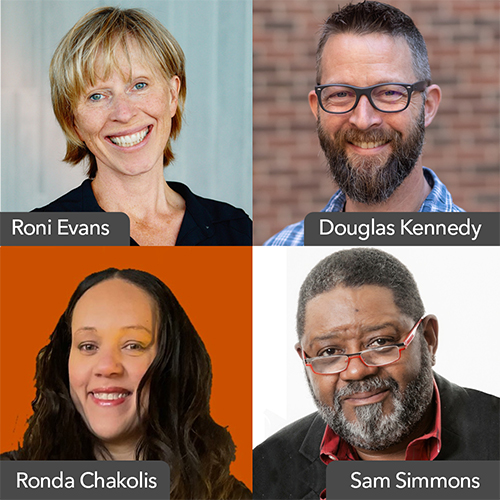
Living Well With Pain

U of M researchers and community experts are launching a public discussion series to examine barriers in treating chronic pain.
Up to 80 percent of people in the U.S. experience back pain at some point in their lives with people of color, and those with less education and income, having the poorest outcomes. Most of the time the discomfort is temporary but, for some, the pain persists and becomes disabling.
While opioids are routinely prescribed for back pain, they can lead to serious problems with overuse, addiction, and overdoses. But there is emerging research showing that non-drug options, including complementary and integrative therapies, can empower people to take charge of their own pain. Unfortunately, disparities in health care mean those approaches are inaccessible to many who could potentially benefit from them.
Roni Evans is the director of the Integrative Health and Wellbeing Research Program at the University of Minnesota’s Earl E. Bakken Center for Spirituality and Healing. She, and others in the research program, including Assistant Professor Douglas Kennedy, have been studying non-drug, complementary and integrative approaches, like exercise, guided imagery, mindfulness, and chiropractic and physical therapy, for pain relief for over 25 years.
We recently talked with Evans and Kennedy to learn more about a new Living Well With Pain series, which will launch with Managing Your Pain, So It Doesn’t Manage You at 4 p.m. Thursday, November 17 as a Robert J. Jones Urban Research and Outreach Engagement Center (UROC) Critical Conversation. The event will be live via Zoom.
Tell us about the Living Well With Pain Series.
A big focus of our research examines complementary or integrative approaches for pain management. Too often, research in this area has not involved patients and communities in the process, so the results have not been as relevant and meaningful as they could have been. Our research program, with our community partners, started the Community Engagement Initiative to collaborate with patients and communities to begin to address these gaps.
The Living Well With Pain series, which will be held at UROC, is an opportunity for community members, community leaders, practitioners, and University researchers to come together. In addition to having authentic conversations, we will share information that can help empower individuals to better manage their pain.
Currently, we are envisioning informative presentations followed by lots of conversation that can lead to actionable steps. We believe understanding people’s experiences, including the biases and other barriers they have faced, can help us work together to come up with solutions that can really work for the community.
We also hope the process will help us build trust, increase interest in how research can benefit individuals and their communities, and enhance collaboration. The Living Well With Pain series will provide a platform for making people aware of ongoing research they may be interested in, as well as initiate new research ideas, and bring research back to the community so people can actually put it to use.
Who are your key community partners?
Our Community Engagement Initiative began with partners from the YMCA of the North Equity Leadership Institute, UROC, and HUE-Man Partnership. We also have insightful community leaders working with us to develop the Critical Conversation and Living Well With Pain series. Ronda Chakolis, a licensed medication therapy management pharmacist, has consulted on previous National Institute of Health studies. Sam Simmons is a licensed alcohol and drug counselor and behavioral consultant. His consulting group convenes the annual Community Empowerment Through Black Men Healing Conference.
Why is this research so important, and how is UROC supporting your work?
UROC has been a wonderful partner. Finding ways to reduce and prevent chronic pain has become one of the most important public health challenges of our time. Unfortunately, the same individuals who suffer most from back pain—people of color and those with less income and education—also have the least access to promising pain management approaches that support health and wellbeing. UROC is serving as a critical hub for us to come together with people in the community, so we can learn from one another and devise ways to better tackle pain management and the opioid crisis.